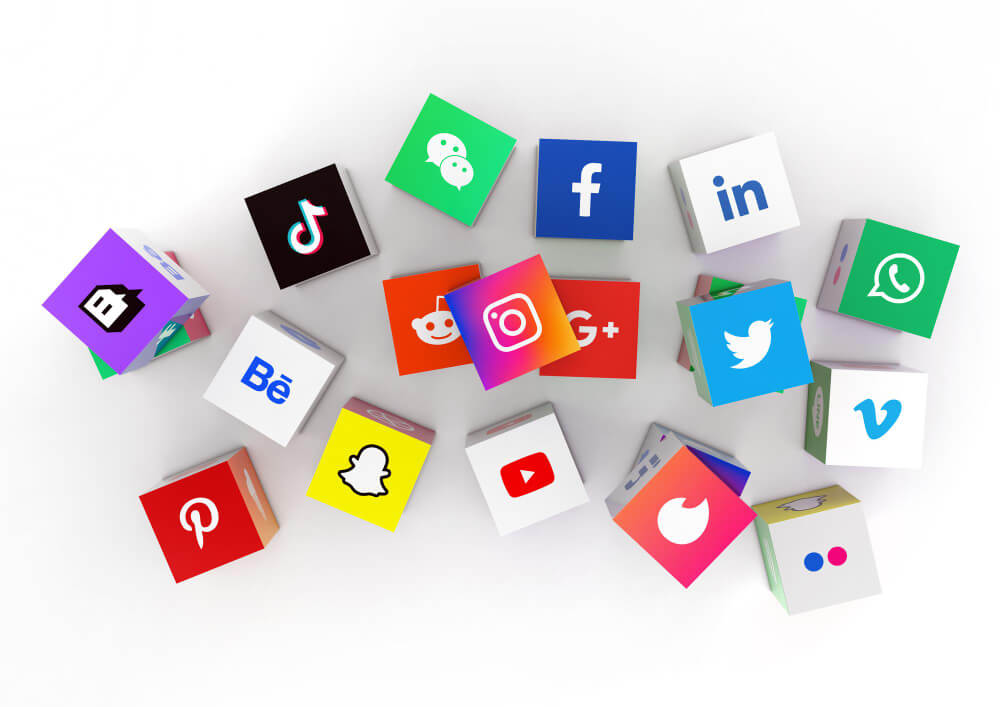Planning an event involves attention to detail. In today’s world, an integral part of event success lies in effectively leveraging social media. Social platforms are powerful tools for spreading awareness, engaging with your audience, and ensuring your event achieves its goals. However, success on social media doesn’t happen by accident, it requires a well-thought-out strategy.
Creating a social media plan for your event involves several steps, each tailored to align with your event’s objectives and audience preferences. Here’s an ultimate guide to social media marketing for events to drive engagement and maximize impact.
Table of Contents
Tips to Plan Event Social Media Strategy
Here are a few expert tips for event social media planning:

1. Define Your Goals
The foundation of any social media plan for events is understanding why you are using these platforms. Start by defining your goals. Are you aiming to increase ticket sales, build brand awareness, or create a community of engaged attendees? Having a clear set of objectives gives you a sense of direction and helps you measure success after the event.
For example, if your goal is to increase attendance, your social media strategy should focus on creating buzz and making it easy for people to register for your event. Alternatively, if your goal is to enhance attendee engagement, you might prioritize interactive content, polls, or event-related challenges that encourage active participation.
2. Know Your Audience
Understanding your audience is crucial for tailoring your social media plan for events. Spend time researching who your attendees are, including their demographics, interests, and preferred platforms. For instance, a professional networking event might find its audience on LinkedIn, while a music festival would be better suited for Instagram.
Knowing your audience helps you craft messages that resonate with them. Think about what motivates your audience to attend your event. Is it educational content, networking opportunities, or entertainment? Once you identify these motivations, you can design your social media content to speak directly to these interests.
3. Leverage Each Platform in the Right Way
Not all social media platforms are created equal, and using every platform available can dilute your efforts. Instead, leverage the social platform where your target audience is most active. Facebook is excellent for event promotion due to its robust event tools, Instagram is ideal for visual storytelling, and Twitter can help with real-time updates and building conversations.

Choosing the right platform also involves understanding each platform’s strengths. Instagram Stories can offer behind-the-scenes glimpses, while LinkedIn is a great place to share thought leadership content for professional events. By aligning your content with the platform’s unique features, you increase your chances of reaching the right people in the right way.
4. Craft a Content Calendar
Consistency is the key to a successful social media strategy for events, and a content calendar helps you stay organized and on track. Begin by mapping out the timeline leading up to your event. Determine what to post and when, ensuring a steady flow of content that builds anticipation.
Start your calendar with an announcement post to generate excitement. Gradually, share updates such as speaker reveals, venue highlights, or countdowns to create a sense of urgency. Don’t forget to include interactive content like polls, quizzes, or user-generated content challenges to engage your audience. A well-planned content calendar ensures that your social media presence remains active and relevant without overwhelming your followers.
5. Develop Engaging Content
The content you post should be engaging, informative, and aligned with your event’s social media goals. Visual content is particularly effective such as eye-catching images, videos, and infographics to capture attention. For instance, a short video teaser featuring event highlights or key speakers can generate excitement and curiosity.
In addition to visuals, use compelling copy to convey your message. Write captions that spark interest, encourage conversations, or inspire action. With the power of storytelling, you can connect audience on a more deeper level. Share behind-the-scenes moments, testimonials from past attendees, or the journey of planning the event. By making your content relatable and authentic, you can build a deeper connection with your audience.
6. Leverage Event Hashtags For Relevant Posts
Hashtags are invaluable for increasing the visibility of your posts and making your event discoverable to a wider audience. Create a unique event hashtag and encourage attendees to use it in their posts. This not only amplifies your event’s reach but also helps you gather user-generated content.

Additionally, use popular and relevant hashtags that align with your industry or event theme. For example, if you’re hosting a tech conference, hashtags around tech can help attract the right audience. Keywords also play a crucial role, especially for platforms like YouTube or Pinterest, where searchability matters.
7. Engage with Your Audience
Social media isn’t just about broadcasting information. Use it to engage with your audience by participating in conversations, responding to comments, and answering questions. This not only fosters a sense of community but also builds trust and excitement around your event.
Engagement can take many forms. For instance, you can host live Q&A sessions on Instagram or Facebook to answer queries about the event. Create polls or surveys to involve your audience in decision-making, such as selecting topics for panel discussions or choosing a theme for the event. The more interactive your social media presence, the more connected your audience will feel.
8. Utilize Advertising Campaigns
While organic reach is valuable, paid advertising campaigns are highly effective in making your event more visible to the target audience. Social media comes with specific targeting options that allow you to reach specific demographics based on location, age, interests, and behaviors. This ensures that your ad campaigns are seen by people who are most likely to attend your event.
Invest in ads that promote early-bird tickets, highlight exclusive features, or showcase testimonials from past attendees. A combination of visually appealing graphics, persuasive copy, and clear calls to action can make your ads highly effective. Paid campaigns are particularly useful during the critical phases of event promotion, such as the initial launch or the final days leading up to the event.
9. Collaborate with Influencers
Influencers can amplify your event’s reach by tapping into their loyal followers. Connect with influencers whose audience aligns with your target demographic and ready to promote your event. This could involve sponsored posts, Instagram takeovers, or even co-hosting live sessions.
Micro-influencers, who have smaller but highly engaged followings, can be especially effective for niche events. Their endorsements often feel more authentic and relatable, making them a valuable part of your social media strategy for events.
10. Monitor Your Social Media Strategy for Events
Social media success requires constant monitoring and adaptability. Use analytics tools to track the performance of your posts, ads, and overall social media strategy for events. Pay attention to metrics such as engagement rates, click-through rates, and conversions to assess what’s working and what needs improvement.
For example, if a particular type of content consistently generates high engagement, consider creating more of it. On the other hand, if certain posts fail to perform, analyze why and adjust your approach. Flexibility is key to ensuring that your social media plan remains effective and responsive to your audience’s preferences.
11. Strengthen the Relationship With A Thank You Post
Engage your audience by expressing gratitude. A heartfelt thank-you post directed at attendees, sponsors, and partners can strengthen relationships and showcase appreciation. Mention specific contributions where possible, as this adds a personal touch and fosters goodwill.
12. Share Positive Words From Attendees
Sharing testimonials is another effective social media strategy for events. Highlight feedback from attendees, either through direct quotes or video snippets, to underline the event’s impact. Positive testimonials build credibility and can serve as promotional material for future events.
Also, you can use post-event opportunities to gather insights. Share post-event surveys or polls on your social media platforms, inviting attendees to share their thoughts. This demonstrates that you value their opinions and helps you identify areas for improvement. To incentivize participation, offer a small reward, such as a discount on future event tickets.
Social Media Event Marketing Trends to Know About for 2025
Social media is constantly evolving, and staying updated on the latest trends is vital for successful event marketing. Here are a few trends shaping how events are promoted on social platforms:

1. Video Content Dominance
Video continues to be the most engaging form of content on social media. Short-form videos, especially those under a minute, dominate platforms like Instagram Reels and YouTube Shorts. For event marketing, this means creating teaser trailers, speaker highlights, or behind-the-scenes clips to grab attention. Livestreaming is also gaining traction, allowing audiences to experience the event virtually and generating FOMO (fear of missing out) for future attendance.
2. Personalized and Interactive Experiences
Audiences expect more than just passive content. Polls, Q&A sessions, and interactive stories are becoming staples in social media strategies. Personalization also plays a key role, such as addressing followers by name or tailoring content to specific audience segments.
3. AI-Powered Optimization
AI is transforming how social media content is created and optimized. From auto-generating captions to suggesting the best times to post, AI tools are helping event marketers maximize their social media ROI. AI-powered analytics also provide deeper insights into audience behavior, enabling smarter decisions for future campaigns.
4. Community-Driven Campaigns
Building a sense of community is becoming a key focus for social media strategies. Instead of just promoting the event, marketers are creating spaces where audiences can connect and engage. For example, private Facebook groups or LinkedIn communities allow attendees to network before and after the event. Encouraging user-generated content with unique hashtags strengthens this sense of community and builds long-term loyalty.
Final Thoughts
Creating a social media plan for events is a multi-faceted process that requires careful planning, creativity, and adaptability. By defining clear goals, understanding your audience, and crafting engaging content, you can leverage social media to maximize your event’s impact. Whether it’s your first event or your hundredth, a well-executed social media plan can make all the difference in creating a memorable and successful experience.




















